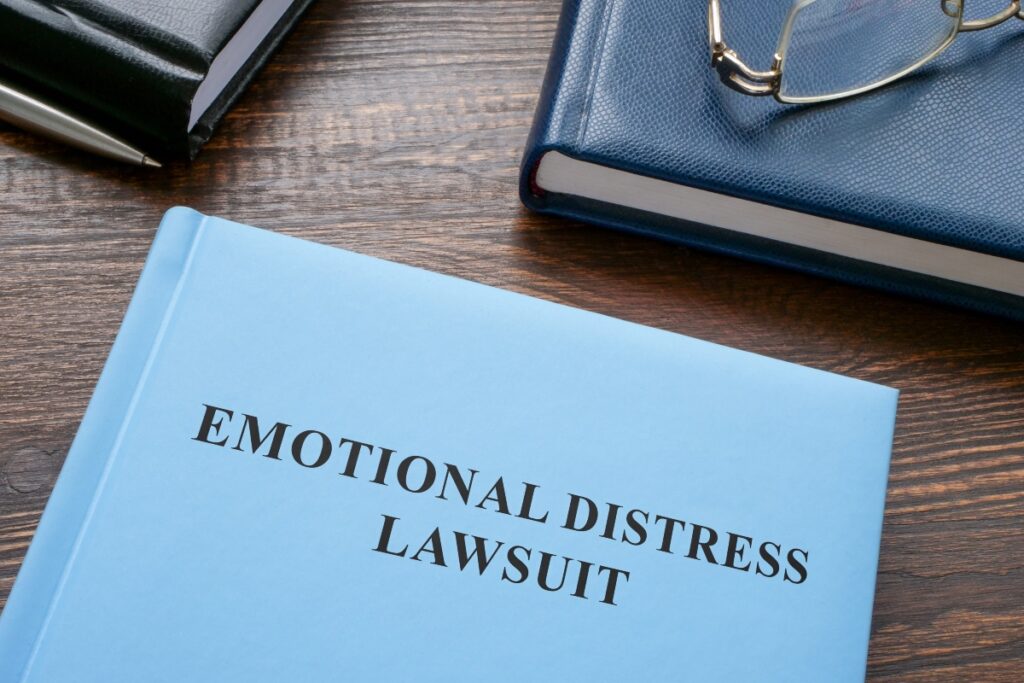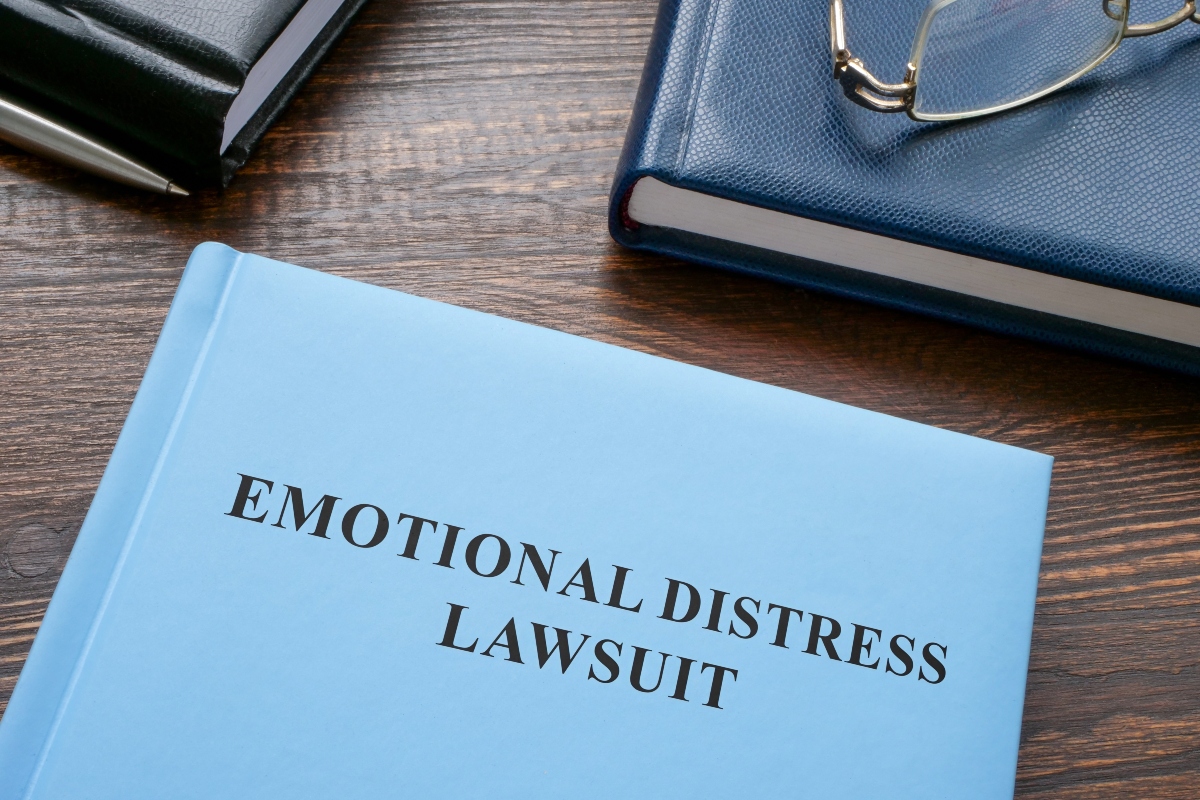If you’ve ever seen a TV court show, there’s one claim that seems to get tacked on to every case. Emotional damage. If that’s the case, and you’ve recently found yourself in a civil case, you’re likely wondering if you can sue for emotional distress on top of damages that you’ve accrued.
After all, it is very stressful, and you very well might have serious emotional distress from the incident.
So, can you sue for emotional distress after an accident? The short answer is: yes. However, it’s a bit more complicated than it’s usually depicted, and you’ll need to keep a few important things in mind before you try to take it to court.


It’s A Lot Harder to Claim Than You Think
First and foremost, while emotional distress is a common claim on TV, it’s not that easy in real life. You can technically sue for emotional distress whenever you want. However, the likelihood of a court taking it seriously depends on a lot of factors.
The court has to abide by a complex set of rules. For example, while you can claim that the stress from the car accident caused emotional distress, the court isn’t going to just take your word for it.
You have to prove, in a tangible way, that you have suffered measurable emotional distress. That’s not as easy as you’d think it is. Simply telling the court, even if your story is reasonable and believable, isn’t enough to legally obligate the court to charge someone money to compensate you.
That doesn’t mean you should forego making an emotional distress claim, though. It simply means that there are some factors you want to consider when deciding whether or not to make the claim, and there are some things you’ll need to do.
Get a Professional Opinion on the Situation
Like we said, you describing your emotional distress is going to be part of the case, but it’s not enough for the court to do anything. If you are suffering emotionally after the incident, you’re going to need a professional opinion to prove that to the court in an effective, legally actionable way.
For the most part, this means that you will need to seek treatment from a therapist. That professional will have to diagnose you with an issue. That might be a short-term emotional or mental instability, or it might be a lifelong problem such as PTSD.
This also needs to support the idea that the mental issue in question stems from the accident. This can get a little complicated. For example, let’s say you were in the military, and your therapist diagnosed you with PTSD for your court case.
PTSD is common in veterans, and there has to be a clear distinction between the issue stemming from your service and the incident. Not having that distinction leaves too much up for debate, and the other party is only responsible for the damage they have caused.
Not pre-existing problems. That’s a clear-cut example, but all kinds of arguments can be made to remove the other party’s liability unless the professional opinion connects the issue to the incident.
This is especially true in cases involving dog bite injuries or medical malpractice, where emotional trauma can significantly affect the victim’s quality of life and may become a key factor in the legal process.
Either way, having a trained professional officially back your claim of an emotional issue stemming from the accident is crucial for making such a claim in court.
Determining Value
With most damages, it’s easy to determine how much the case is worth. You can use math to add up lost wages, receipts to show how much it cost to repair your car or handle your medical bills, and other things.
The only thing that has to be considered with those factors is comparable negligence and whether or not a deal is being struck that lowers or increases values for a mutually agreed-upon reason.
With a mental repercussion for the incident, there isn’t a receipt for what it has cost you. Sure, you have the therapist bills, but those can be looked at the same way as normal medical expenses. How much money does PTSD or crippling anxiety cost you?
One thing that can help with this is a third-party expert witness who has dealt with cases like this in the past and can bring up professional, unbiased examples, or you can look at historical rulings that are relevant, etc.
What you don’t want to do is pull an arbitrary number out of thin air. The court is fact-based, and you’ll need to explain why you’re claiming every penny. You can’t do that effectively without some sort of tangible baseline limit.
Luckily, while emotional distress is more complicated than most people think, it is relatively common, and there are plenty of precedents in place to help guide your legal team.
Read also: How to Maximize Your Personal Injury Settlement
Leveraging Witnesses and Personal Accounts
Convincing the court or the jury that you have genuinely suffered emotional issues due to the accident is going to require a lot of backing.
A good way to help with this is to get as many witnesses as possible, because they can back up your story from the time of the incident, or they can provide an account of the effects of the incident since then.
Maybe you have a coworker who can vouch for the fact that you really did slip and fall, and that your personality and way of interacting with the world have completely changed since the accident.
Or maybe someone close to you can give a detailed account regarding your lost enjoyment of life in connection with it. You’ll also need to have a personal account of how things have affected you, and it will have to be detailed.
You can’t simply tell the court that the accident has made you afraid to drive, and now you have trouble in your daily life because of it. You’ll have to describe how you feel when you get in a car, triggers for extreme anxiety or fear, the activities that you’re missing out on, etc.
Win Your Emotional Distress Claim with DeSalvo Law
Emotional distress claims can be complicated and stressful, but you don’t have to face them alone. Having an experienced attorney on your side can make all the difference.
At the Law Office of Scott D. DeSalvo, we’re here to help you navigate the legal process and ensure that you receive the compensation you deserve for both the physical and emotional toll the accident has caused.
In addition to emotional distress claims, we also handle workplace injury cases, construction accidents, CTA-related incidents, and more! Whatever your situation, we have the experience and dedication to help you get the justice you deserve.
Contact us today, and let’s take the next step toward securing the justice and compensation you need to move forward.




